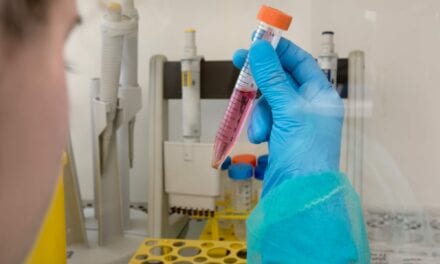Patients at John Theurer Cancer Center at Hackensack University Medical Center in Hackensack, N.J., now have access to state-of-the-art genomic profiling through a newly established on-site lab called Key Genomics. The laboratory is the result of a collaboration between Regional Cancer Care Associates (RCCA) and Genomic Testing Cooperative (GTC) in Irvine, Calif. It will serve physicians within Regional Cancer Care Associates, a network of cancer professionals in New Jersey, Connecticut, and Maryland.
GTC has developed highly validated tests for DNA, as well as RNA profiling. These tests are transferred and validated at Key Genomics Laboratory and will be performed in real-time at John Theurer Cancer Center at Hackensack University Medical Center. This will help physicians choose better, refined, and personalized therapy for JTCC cancer patients.
Read Theurer Cancer Center Establishes NGS Laboratory for Genomic Profiling of Cancers
John Theurer Cancer Center will perform molecular profiling of all solid tumors or hematologic cancers, where it can help treatment decisions.
“This is a unique, one-of-a kind collaboration to advance patient care and drive innovation. JTCC is leading in implementing a multidisciplinary approach to precision medicine. GTC is delighted to be a part of the team in this approach” says Maher Albitar, MD, chief executive officer and chief medical officer at GTC. “The offered tests are designed to confirm diagnosis, predict prognosis, and help physicians in selecting the correct therapies and help to monitor minimal residual disease.”
“As the leading cancer program in New Jersey, the John Theurer Cancer Center offers the latest therapies, including phase I clinical trials. With the explosion of novel therapies now available or in the pipeline, the future of cancer requires taking into consideration the remarkable variance of the cancer genetic make-up of tumors among patients. This explains why patients react differently to treatments and hence have different outcomes,” says Andre Goy, MD, physician-in-chief for oncology at Hackensack Meridian Health. “With the ability, we can test patients’ molecular differences, will help stratify patients and customize treatment decisions, as well as monitor patients’ response including measuring minimal residual disease (beyond imaging and standard blood work). The development of clinically actionable tests using a dual DNA and RNA signature along with artificial intelligence is key to implement precise medicine in both blood cancers and solid tumors.”
DNA is the blueprint for all genetic information in the body; RNA converts genetic information from DNA to build proteins. Often in cancer, mutations in genes lead to defective proteins that can trigger cancer development, cause cancers to become resistant to treatment, or make them spread further. Profiling both DNA and RNA in a patient with cancer can provide more information than DNA testing alone regarding the cancer origin, biology, and clinical behavior as well as the response of the immune system of the patient to the cancer.
The testing will include 434 genes for DNA and more than 1400 genes for RNA for solid tumors and 177 genes for DNA and over 1400 genes for RNA for hematologic tumors. Liquid biopsy testing includes 275 genes.
More than 35,000 cancer patients are treated annually at John Theurer Cancer Center. The center participates in more than 350 ongoing clinical trials.
For more information, visit John Theurer Cancer Center.





